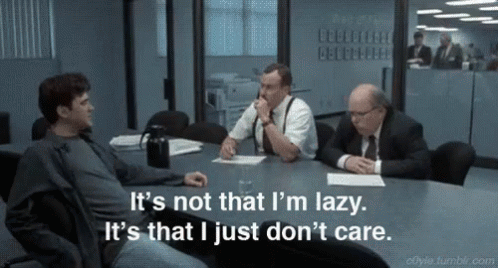Hi everyone! Can you believe it’s now the fall season? Time seems to be zooming by so quickly. If you’ve already started to plan your 2023 team motivational seminars, remember I’m just one booking away from meeting you in person! Today, I wanted to chat with you about how to be the best leader around by wasting company resources. Wait, what’s that? I swear I can hear you shouting at me through the monitor. No Nathan, I don’t want to learn that? Yikes! Let’s get into what I mean.
Way too often I hear leaders say, “This leader is really struggling, and they need to be coached.” On the front of it, it may not necessarily sound like an unworthy investment, until you realize you may just be throwing money down a bottomless well. Hey! No more shouting! Let me explain.
Do You Invest in Your Best Employees or Spend time on the Worst Employees?
 Several months ago, a client asked me if I would coach one of his leaders- let’s call him Blake. Of course, I said I would, but I knew Blake had terrible leadership and employee habits. Curious, I asked why there would be no additional coaching for his strongest leader in the middle- we’ll call him Jason. His response was that Jason was doing well, he wasn’t a concern, Blake really needed help in the leadership department. Huh.
Several months ago, a client asked me if I would coach one of his leaders- let’s call him Blake. Of course, I said I would, but I knew Blake had terrible leadership and employee habits. Curious, I asked why there would be no additional coaching for his strongest leader in the middle- we’ll call him Jason. His response was that Jason was doing well, he wasn’t a concern, Blake really needed help in the leadership department. Huh.
I told my client the same piece of advice I want you to leave with today,
“The biggest mistake we make as leaders is we tend to try and coach and develop those that need it, instead of those that deserve it.”
Too often in business, heads of companies hire a leadership coach when they’re on their last leg of the journey with a particular employee. The mindset, though well intentioned, seems to be ‘If this can’t finally fix their bad habits, we’ve got to let them go’. Ever heard the saying you can’t teach an old horse new tricks? Well, let me tell you, it’s been an idiom for centuries because it’s true.
Here’s How to Really Lead Your Team to Victory
 Leadership Strategy #1: There are No Champion Rings for a Team Full of Stragglers
Leadership Strategy #1: There are No Champion Rings for a Team Full of Stragglers
If you find that a leader or employee is continuously struggling, it can most likely be attributed to either a lack of will or a lack of skill. Bringing coaching into the mix isn’t a magical cure-all. Chances are this bad employee is not going to implement the lessons they’re going to be coached in. They’ve already got a serious issue when it comes to putting words into actions, that’s why they’re struggling in the first place. If they’re not willing to listen to you, their leader, they’ll be even less willing to learn from someone else. Of course this all assumes you did start them off on the right foot (you set expectations, trained what they need to know, and explained your accountability system).
It is rare that an employee fails due to lack of knowledge, rather it boils down to a lack of willingness and discipline to do the hard stuff.
Leadership Strategy #2: Prioritize Leading Those Who Are Willing to Learn and Implement
The idea of coaching employees should be based on merit. In other words, prioritize coaching those employees who genuinely desire to be better at their job. These are your best employees, they’re self-motivated and are consistently seeking opportunities to learn and grow. They’re the ones that are guaranteed to benefit from coaching sessions because they’ll take those lessons and implement it. Simply put, they’re the better resources to invest in.
I’ve always been ethically compelled to ensure that my clients are getting a great return on their investment. Some of you may say I’m mad for being so logical and upfront about it, but I’ll always be honest with my clients (and my readers!). If I am coaching someone myself and they are not doing the work, then the relationship ends. Being great, and staying great, takes work, effort and commitment.
Invest in employees willing to be coached, they’re the ones that will appreciate and implement those valuable lessons learned.
 Leadership Strategy #3: Learn the Difference Between a Situationally Struggling Employee versus One That’s Just There to Keep a Seat Warm
Leadership Strategy #3: Learn the Difference Between a Situationally Struggling Employee versus One That’s Just There to Keep a Seat Warm
With all that I’ve said, I don’t want you to take it to mean that I believe good employees won’t have skills that require further development. I’d be a loon to say or believe that! Of course, everyone needs coaching to fill a gap or two and even just to stay sharp. Rather, I mean you should take a deeper look and identify who’s actually struggling but are keen to fix it.
Invest in those employees who you know are willing to return on your investment in training and coaching. We should be coaching them because we know that given the opportunity, they’ll become an even better employee.
Final Thoughts on Leading a Strong Team
The way we determine if a leader or employee deserves coaching is not based on their failures or persistent issues. It should be based on their efforts and their willingness to learn. Keeping it 100, even the best coach in the world cannot coach someone that does not want to be coached.







